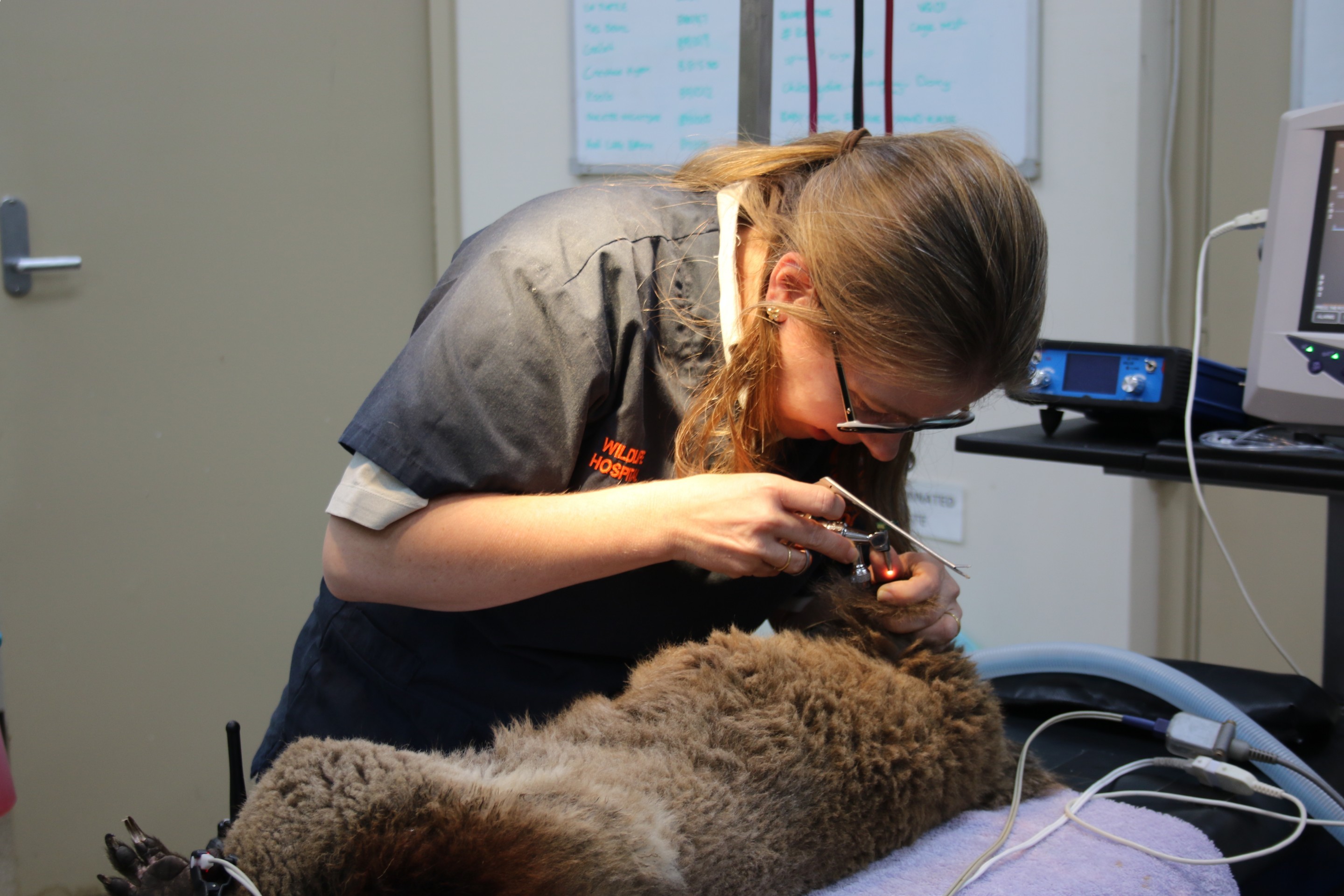Posted on 29th January 2019 by Media Relations
Summer has been a busy period for the Taronga Western Plains Zoo Wildlife Hospital with a number of native birds, reptiles and mammals all in need of a helping hand.
In particular the Wildlife Hospital has admitted six koala casualties in the past two months, five of them from the Gunnedah region. Each koala has presented with a variety of issues from low body weight, dehydration, broken ribs and damaged feet through to eye and urinary tract issues as a result of trauma or infection. All five Gunnedah koalas were diagnosed with chlamydia, amongst other problems.
Whilst one koala could not be saved as its infection was too advanced, the other five koalas are currently undergoing treatment and rehabilitation either on site at the Zoo or with a wildlife carer.
“We’ve seen a real increase in the number of koalas with serious disease from the Gunnedah region,” said Veterinarian, Dr Michelle Campbell.
“Koalas are struggling in the drought to find fresh leaves due to the dry conditions and a reduction in feed trees. These pressures on limited habitat are having a major impact on the koala population in this area with animals becoming increasingly isolated and stressed.”
“One poor koala which had deep ulcers on all four feet looked like he had been on the ground for a long time, most likely in search of a food source,” said Michelle.
Local communities can help support koala and native wildlife populations by encouraging habitat preservation on farms, on public land and in suburban areas. Planting native species that provide both shade and a food source is also a great way for gardener’s to support local wildlife.
“Through protection of existing habitat, bush regeneration and tree planting we can all help to secure a future for local wildlife,” said Michelle.
If you live in an area that is frequented by native wildlife you can leave a shallow saucer or bowl of fresh clean water on the ground for thirsty animals during hot weather.
The Wildlife Hospital at Taronga Western Plains Zoo provides a specialised veterinary and rehabilitation service for free-ranging wildlife. It is a fully equipped, modern veterinary facility operated by dedicated wildlife veterinarians and veterinary nurses with expertise in the assessment, treatment, rehabilitation and release of Australian wildlife. Last year the Zoo’s Wildlife Hospital saw almost 600 wildlife cases.
If you find a native animal in distress or injured please contact the Wildlife Hospital on 6881 1461 or your local wildlife rescue organisation such as WIRES.
